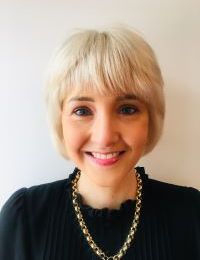
Women who have insufficient glandular tissue (IGT) may struggle with their milk supply, despite good breastfeeding management. Some of these babies can present with dehydration in the neonatal period, hypernatremia or even death, and it is uncommon for mothers to receive support with breastfeeding to achieve goals that benefit the dyad. It is of great importance to help with an accurate and prompt diagnosis that benefits both mother and baby and supports the choice to continue breastfeeding with breast/ chest supplementation if needed.
IBLCE Content Outline: 1.25 L Cerp (I, II, III, IV, V, VI, VII)
Immunoglobulin A (IgA) is secreted into breast milk and is critical to both protecting against enteric pathogens and shaping the infant intestinal microbiota. The efficacy of breast milk-derived maternal IgA (BrmIgA) is dependent upon its specificity however, variability in the binding ability to the infant intestinal bacteria is not known. We demonstrated that a relative reduction in IgA binding to inflammatory intestinal bacteria in preterm infants is associated with an increased likelihood of developing Necrotizing Enterocolitis (NEC), so binding of intestinal bacteria in infants may be important in some settings. Using a flow cytometric array, we analyzed the ability of BrmIgA against bacteria common to the infant microbiota and discovered substantial variability between all donors. Conversely, longitudinal analysis showed that the anti-bacterial reactivity of breast milk-derived antibodies was relatively stable through time, even between sequential infants, indicating that mammary gland IgA responses are durable. Together, our study demonstrates that the anti-bacterial BrmIgA reactivity displays inter-individual heterogeneity but intra-individual stability. These findings have important implications for how breast milk shapes the development of the preterm infant microbiota and protects against NEC.
IBLCE Content Outline: 1 L Cerp (I, II, III)
Lactation mastitis is a debilitating inflammatory breast disease occurring in 1 of 5 Australian breastfeeding women. The disease causes reduced milk synthesis, localised pain, and the rapid onset of systemic symptoms including fever, muscle aches, chills and fatigue, leading many women to use supplementary formula or cease breastfeeding altogether. Forty years ago, it was believed that the underlying cause of mastitis was infection of the breast with pathogenic bacteria. This old paradigm was built upon work within the dairy industry showing that mastitis in dairy cows can be significantly reduced by sterilisation of milking equipment and routine administration of antibiotics. However, this simple relationship between pathogens and disease in women is not supported by current clinical evidence and it has become clear that the underlying causes of mastitis in breastfeeding women are more complex. Our research is providing new insights into the biology of mastitis and challenging the old paradigm. Through developing a better understanding of the causes of mastitis, we can develop new treatment and prevention approaches to this debilitating disease and improve breastfeeding outcomes.
IBLCE Content Outline: 1 L CERP (I, II, III, IV, V, VI, VII)
I. Development & Nutrition
II. Physiology & Endocrinology
III. Pathology
IV. Pharmacology & Toxicology
V. Psychology, Sociology & Anthropology
VI. Techniques
VII. Clinical Skills
Breastfeeding offers metabolic benefits for both mother and child, particularly in the context of maternal metabolic conditions such as diabetes, obesity and polycystic ovary syndrome (PCOS). However, lactating parents with insulin-resistant conditions experience more difficulties in establishing and sustaining lactation. In this presentation, we will review the basic pathophysiology of diabetes and PCOS, discuss the impact of these conditions on breastfeeding outcomes, outline the likely underlying mechanisms for lactation difficulties in women with metabolic disease, and describe clinical management considerations.
IBLCE Content Outline: 1 L CERP (I, II, III, VII)
In this presentation, Ginna will take a look back at history, and then review the current literature on nipple soreness in breastfeeding mothers. She will explore various approaches to preventing/managing pain, look at some new modalities not yet widely in use, and finish with some unique case studies.
IBLCE Content Outline: 1.5 L CERP (I, III, IV, VI, VII)
I. Development and Nutrition
III. Pathology
IV. Pharmacology and Toxicology
VI. Techniques
VII. Clinical Skills

Ginna Wall
Ginna ran the lactation program at the University of Washington Medical Center in Seattle Washington for 35 years. She led the way to Baby-Friendly Hospital certification in 2009 and recertification in 2019. Before that she was an acute care inpatient pediatric nurse, a camp nurse, a childbirth educator, and a doula. She enjoys teaching healthcare workers about all the things she learned along the way.

Wendy Ingman
A/Prof Wendy Ingman is a breast biologist at the University of Adelaide, based at The Queen Elizabeth Hospital. Her research explores the biology of how the breast develops and functions to better understand how disease states occur, including lactation mastitis and breast cancer. Wendy’s research challenges old paradigms and explores new concepts in how the breast develops and functions to improve breast health across the life course.

Mariana Colmenares Castano
Dr Colmenares specialises in paediatrics and breastfeeding medicine. She has a special interest in tongue-tie assessment and division, and has had the opportunity to work with many challenging cases. She is a founding member of the Mexican organization of IBCLC’s, Asociacion de Consultores Certificados en Lactancia Materna de Mexico, ACCLAM and is also secretary of the Academy of Breastfeeding Medicine. She coordinates a 280 hour online breastfeeding course for health-care professionals.

Tim Hand
Dr Hand is associate professor of pediatrics and immunology and the director of the Gnotobiotic Animal core facility at the University of Pittsburgh. Currently, he directs the Immunity to Bacterial Colonization Lab at UPMC Children’s Hospital. He has published over 35 research articles and scholarly reviews and was named the inaugural ‘Emerging Leader’ by the Society for Mucosal Immunology in 2022.

Kate Rassie
Dr Kate Rassie is a consultant endocrinologist at Monash Health and at Jean Hailes for Women’s Health, Melbourne. She is also a final-year PhD candidate at Monash Centre for Health Research and Implementation, Monash University. Her doctoral thesis focuses on the relationships between maternal metabolic health and breastfeeding, with a focus on insulin-resistant conditions such as PCOS and diabetes. Clinically, she works in diabetes, obesity and metabolism; and across all aspects of female hormonal health and reproductive endocrinology (including menopause, PCOS, hypothalamic amenorrhoea, menstrual mood disorders, bone health, weight management, and thyroid disease).